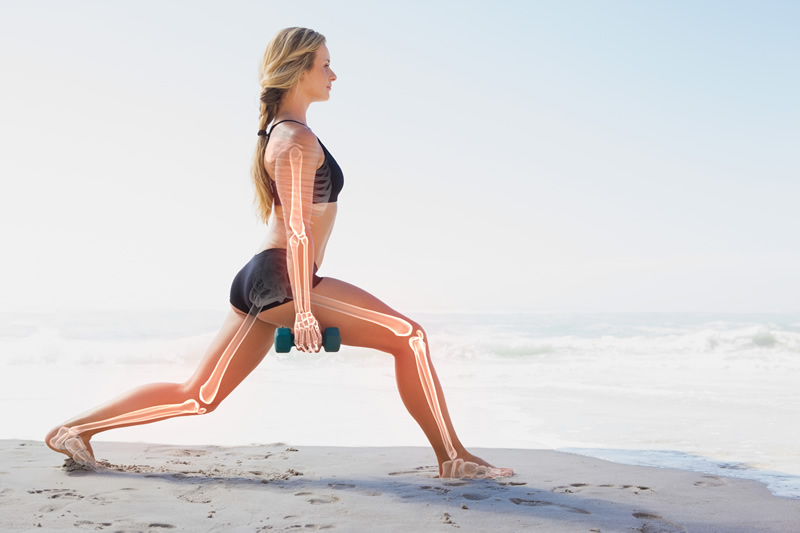Bone Health

Throughout our life our bodies naturally break down old bone and grow new bone which is why we continually need to support the health of our bones through good nutrition and exercise. Especially as we age and if there is a family history of bone disease, it is crucial to take proactive steps to maintain good bone density and prevent from bone loss or further bone loss.
Bone Diseases
What is Osteopenia?
It is the stage before osteoporosis (although it doesn’t always mean you will develop osteoporosis. On a bone density scan it may show that you have low bone density for your age
What is Osteoporosis?
Osteoporosis affects the density of the bones. Its name comes from Latin for “porous bones.”
The inside of a healthy bone has small spaces, like a honeycomb. Osteoporosis increases the size of these spaces, causing the bone to lose strength and density. In addition, the outside of the bone grows weaker and thinner
It's impact on a person can not only be physically, but mental too. It can be painful, reduce mobility, leading to isolation, affecting self esteem and affecting a person’s quality of life.
Osteoporosis affects over 3 million people in the UK. More than 500,000 people receive hospital treatment for fragility fractures
What are the potential Osteoporosis risk factors
- Age - although as mentioned we continually break down and make new bone, however, in our 30s, our body starts to break down bone faster than it’s able to replace it leading to bone that’s less dense and more fragile.
- Being female
- Menopause - changes in hormone levels, especially oestrogencan cause a woman’s body to lose bone even more quickly.
- Family history of osteoporosis
- Poor nutrition
- Physical inactivity
- Smoking
- Low body weight
- Small-boned frame
- Malabsorption due to disorders such as Crohns which may prevent you from absorbing vitamins and minerals
Whilst we can’t control our age, gender and genetics we can control what we eat and how we move and this is where I can help you
How can a nutritional therapist help prevent osteoporosis?
There are many factors that can cause osteoporosis, but there are also many things you can do to help prevent it and build bone strength.
Eating the right things is not only important for our health, but also our bone health. Consuming certain foods may help with further bone loss or preventing future bones loss. It is never too early to start protecting your bones. And diet and lifestyle may be able to help,
What will I consider and suggest to help you?
Your diet – we need to ensure your diet is varied and provides key nutrients for bone health (such as calcium, boron and vitamin D) is important. And that the food and drinks that negatively affect bone health are taken out - don't worry I have some good alternatives up my sleeve so you won't feel deprived, but more empowered!
Exercise
- Weight-bearing exercise and resistance exercise in particular are known to improve bone density. Weight-bearing exercise involves using your legs and feet to support your weight e.g. dancing, aerobics.
- Resistance exercise involves muscle strength, where the tendons pull on the bones. This helps to increase bone strength. E.g. weight-lifting, push-ups and pull-ups.
As a registered nutritional therapist I will work with you (and your doctors if necessary) to develop a tailored bone health diet plan which will support your over all health whilst working to keep bones healthy and strong
It is never too early to support your bones and to take proactive measures which may help prevent future bone health issues.
Start Here
Back to Symptoms
